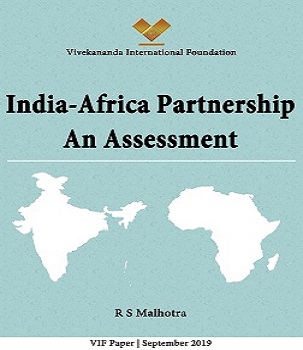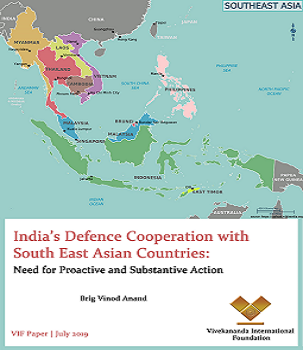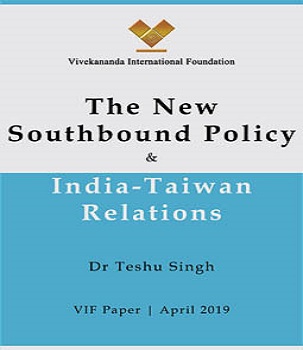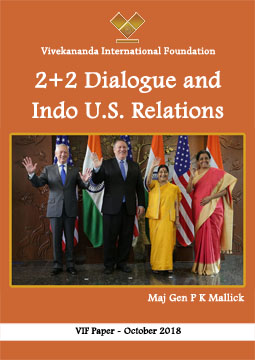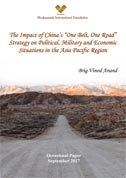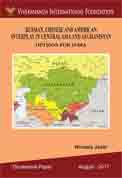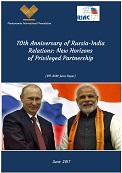… There is a lot of goodwill for India in Africa. African countries appreciate its non-intrusive policies and look towards it for lead and initiative. However, India’s approach has been request-based and not initiative-based... Basically, a cohesive policy and strategic vision for its partnership with Africa is needed ... India must develop a strategic foreign policy and make it initiative-based ...
… with the global and regional dynamics remaining in a state of flux it should be India’s effort to build on the existing defence and security relationships .. as also strive to enhance such an engagement with other members of ASEAN whose interests are more inclined towards China or elsewhere... most of these nations see India as somewhat of a benign balancer in the South East Asian region …
… India-Taiwan relations are no more under the radar and have the potential to grow further … Governments of India and Taiwan aim to facilitate Taiwanese investments … economic engagement and people-to-people contact remain the basis of the relations … The New Southbound Policy is a pragmatic policy that will help Taiwan not to be isolated and maintain its relevance …
… Indian community residing in Africa is very special as it has contributed its skills to the development of the country of adoption, and is integrated with the indigenous populace ... they have retained their emotional,cultural and spiritual links with India ...
... US-Japan alliance is cornerstone for Japan’s security and its deterrence. However, despite conflicts of interests and intermittent tensions, Japan has never sought to replace the alliance with its own defense capabilities .. Though Japan’s strategic policies have underwent massive change with the beginning of 2000s, its security policy for deterrence has not shifted from resting on the US-Japan alliance ..
... moving the defence engagement a notch higher, the two nations are now focused on enhancing closer private defence industry collaboration which will help Indian defence manufacturers in boosting the Modi government’s ‘Make in India’ initiative ... at a strategic level, India’s need to balance its interests between the United States, China, and Russia, maintaining relations with regional partners such as Iran, are also a significant factor ...
… China is unsatisfied with the degree of accommodation offered by the US and the US is uncomfortable with the strategic demands made by China … US wants China to reduce its trade deficit … an unrealistic request given the time it would take to adjust supply chains and given the US consumers' demand for Chinese products … and that China opens up more sectors to investment and trade without restriction ... America holds almost all the high cards in trade with China, and almost none of Beijing’s supposed points of pressure are real threats.
Retrospect When one talks about Silk Road it conjures up visions of traders and caravans travelling from Occident to the Orient and vice versa. There have been many versions of silk roads which have been used by both traders and invaders for ages. These silk roads connected many cultures and civilizations and these exchanges were largely mutually beneficial. For instance, along with the trade Buddhist religion spread from India to Afghanistan and then to Central Asia, and beyond to China along one of the many silk roads/routes.
India’s Interest in Central Asia In the evolving dynamics of the global order in the twenty first century there has been a fundamental shift in International Politics from Europe to Asia, and particularly to the huge Eurasian landmass. In this changing dynamics, British geographer Halford Mackinder’s theory of geopolitics has regained a new and a powerful currency. According to Mackinder, Central Asia is the ‘pivot of history’, and the huge swathe of landmass is the “Heartlands of Eurasia”. In his view whosoever ‘controls the heartlands of Eurasia, controls the world’.
Click here to read full paper

